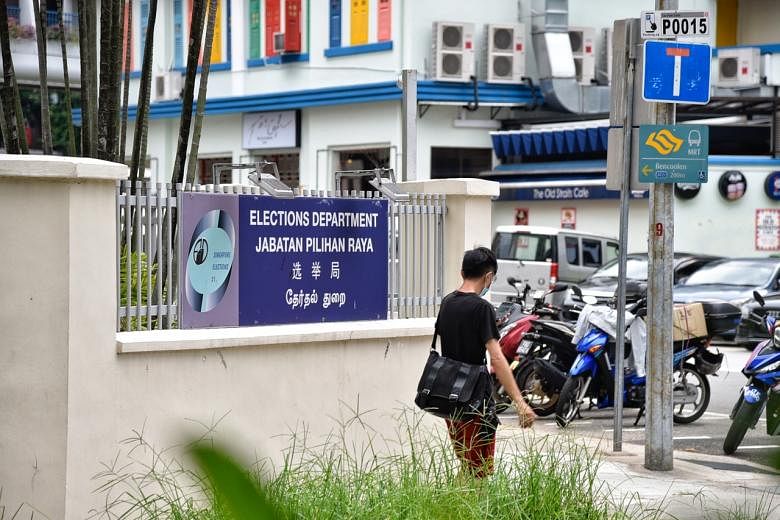SINGAPORE - Political parties will have to comply with stricter rules on paid online advertising at the next general election, said the Elections Department (ELD) on Monday (June 8).
The changes include having to disclose to the department where and when the ads will appear and adding terms to the ads that explicitly indicate they are paid advertising.
"By strengthening disclosure requirements behind the use of paid Internet election advertising, the amendments will enhance accountability and better safeguard the integrity of the electoral process," said the ELD at a briefing to announce the changes made to subsidiary legislation under the Parliamentary Elections Act as well as safe distancing measures at polling stations if an election is called.
At present, candidates are already required to declare to the Returning Officer all the online platforms on which they will be putting up advertisements, whether paid or unpaid. This must be done within 12 hours of the start of the campaign period. All election advertising must also contain the publisher's name, as well as the name of every person for whom or at whose direction the election advertising is published. They must also subsequently declare any new platforms they intend to use before using them.
The returning officer is appointed by the Prime Minister to oversee the impartial and smooth conduct of elections.
Under the new rules, apart from providing the platforms they are going to use, candidates must explicitly declare if they are using paid online advertisements.
If they are, then candidates must provide several details, including where the ads will appear, the publisher of the ad, the time period in which the ad will appear, and whether money was received for the placement of the ad.
Paid online ads must also include statements such as "sponsored by" or "paid for by", indicating that they were paid for by the candidate, political party, or an authorised third-party campaigner.
People who have not been authorised to do so will not be allowed to put up online ads, such as sponsored posts. However, they may still put up unpaid advertising. These include blog posts for which no payment was received.
Another new rule is that candidates must clearly state the amount spent on paid online ads when they submit their election expenses returns form after the elections.
On Monday, the ELD also changed the rules on print advertising, such as election posters or banners.
First, candidates will now have to bear the costs of removing posters or banners that break the rules. This is on top of old rules stipulating that they could be issued a warning, fined, or jailed for such breaches.
Each poster or banner will cost $50 to remove - which ELD said was calculated on a "cost recovery" basis - and the money will count towards the candidate's election expenses.
Previously, candidates were also allowed to display election posters or banners of up to three maximum sizes during the campaign period, depending on whether they were contesting in a single-member constituency or a group representation constituency. They could display one large ad for every 5,000 voters.
Now, candidates will be allowed to display election posters or banners of up to two maximum sizes. They will be able to display one large ad for every 4,000 voters in their constituency, meaning that they can display 25 per cent more ads.
Apart from including the names of the printer, publisher, and person at whose direction or for whom the advertisement has been published, candidates will now also have to include the symbol allotted to them by the returning officer.
This is so that voters are clear on who the poster or banner is for, ELD said. For candidates standing for election under a political party, their allotted symbol will be the party's logo.
The list of items exempted from the definition of "election advertising" has been expanded from small items such as pens and keychains to include umbrellas and other portable objects.
These objects must be worth less than $10 and be less than 10cm by 10cm by 10cm in volume. Items exempt from this requirement should also not contain or display content that is false or negative towards other candidates.
Lastly, candidates were originally required to lodge a copy of their election posters or banners with the returning officer before displaying them.
Now, parties may lodge the same election poster or banner to be displayed across different constituencies on their candidates' behalf.



